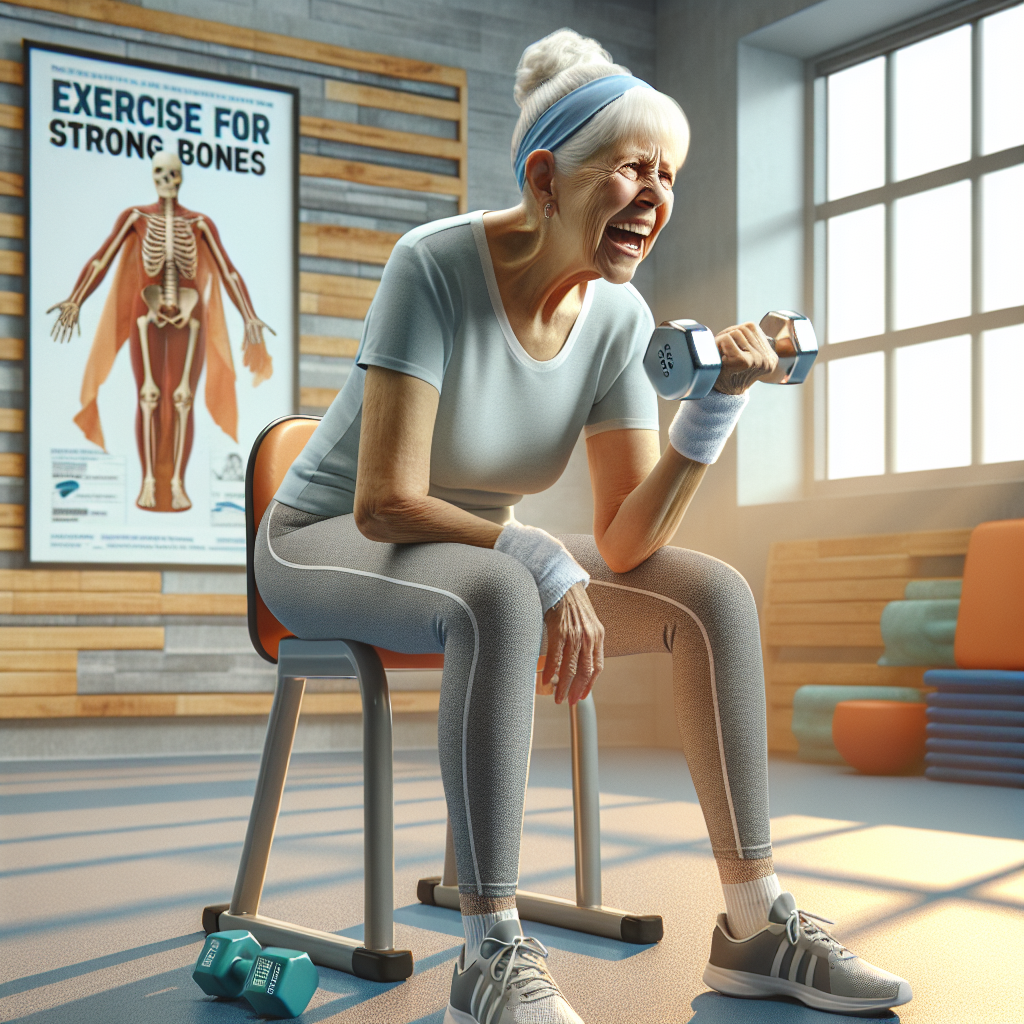As women reach menopause, their risk of bone density loss increases significantly due to hormonal changes that affect the body’s ability to retain calcium and other essential minerals. Understanding the importance of nutrition in maintaining bone health post-menopause is crucial for preventing osteoporosis and related fractures. This article will delve into the dietary strategies that can help maximize bone density during this critical phase of life.
Understanding Bone Density and Menopause
Bone density refers to the amount of bone mineral in bone tissue. The higher the bone density, the stronger the bones. During menopause, the decline in estrogen levels leads to an increase in bone resorption—where the body breaks down bone tissue faster than it builds new bone. This imbalance can lead to weakened bones and an increased risk of osteoporosis.
It’s essential to note that bone health is intricately linked to overall wellness. For a more in-depth discussion on this topic, consider reading about Bone Health.
Key Nutrients for Bone Health
Calcium
Calcium is the cornerstone of bone health. Post-menopausal women should aim for at least 1,200 mg of calcium per day. Dairy products like milk, cheese, and yogurt are excellent sources. For those who are lactose intolerant or vegan, calcium can also be found in fortified plant milks, leafy green vegetables, and tofu.
Vitamin D
Vitamin D is crucial for calcium absorption. Sunlight is a natural source of vitamin D, but as we age, our skin’s ability to synthesize it decreases. Foods like fatty fish, fortified milk, and eggs can help, but supplementation may be necessary to achieve the recommended daily intake of 600 to 800 IU.
Magnesium and Potassium
Magnesium and potassium are minerals that play a role in bone density by neutralizing acids that can leach calcium from the bones. Avocados, nuts, and bananas are rich in these nutrients.
Protein
Protein is a building block of bone matrix. High-quality protein sources include lean meats, fish, dairy, and legumes. However, balance is key, as excessive protein intake can have negative consequences on bone health.
For a discussion on the role of calcium in bone healing, the article Role of Calcium in Post-Fracture Bone Healing is an excellent resource.
Dietary Patterns for Strong Bones
The Mediterranean Diet
The Mediterranean diet, rich in fruits, vegetables, nuts, whole grains, and healthy fats like olive oil, has been associated with better bone density in postmenopausal women.
Plant-Based Diets
Plant-based diets that include plenty of leafy greens, nuts, and seeds can also support bone health, as long as they are well-planned to meet calcium and vitamin D needs.
For insights into the importance of monitoring bone density in athletes, which can also apply to active post-menopausal women, refer to The Importance of Bone Density Monitoring in Athletes.
Lifestyle Factors That Influence Bone Health
Physical Activity
Weight-bearing and resistance exercises stimulate bone formation. Activities like walking, jogging, dancing, and weight training are particularly beneficial.
Avoiding Bone Depleters
Excessive alcohol intake and smoking can hinder bone health. Limiting these can help maximize bone density. For more information, read about The Effects of Excessive Alcohol on Bone Health.
Sun Exposure
Moderate sun exposure without sunscreen can help boost vitamin D levels. However, balance is important to avoid the risk of skin cancer.
Supplements for Bone Health
While food sources are the best way to get nutrients, supplements may be necessary for some individuals. Calcium and vitamin D are the most commonly recommended supplements. However, it’s important to consult with a healthcare provider before starting any supplementation regimen.
For a comprehensive look at the role of supplements, visit Medication & Supplements.
External Resources for Further Reading
- The National Osteoporosis Foundation (NOF) provides extensive information on bone health and osteoporosis, including dietary recommendations specific to post-menopausal women.
- The International Osteoporosis Foundation (IOF) offers resources on the prevention, diagnosis, and treatment of osteoporosis, emphasizing the importance of nutrition.
- The Academy of Nutrition and Dietetics (EatRight) features articles by registered dietitians with tips on maintaining strong bones through diet.
- The Linus Pauling Institute at Oregon State University (LPI) provides a micronutrient information center with detailed information on vitamins and minerals important for bone health.
Conclusion
Maintaining bone density post-menopause requires a multifaceted approach that combines a nutrient-rich diet with a healthy lifestyle. Emphasizing calcium, vitamin D, magnesium, potassium, and protein intake through both food and supplements when necessary, along with regular physical activity, can significantly impact bone health. It’s also critical to minimize lifestyle factors that can diminish bone density, such as smoking and excessive alcohol consumption. By taking a proactive approach to nutrition and lifestyle, post-menopausal women can protect their bones and overall health for years to come.



